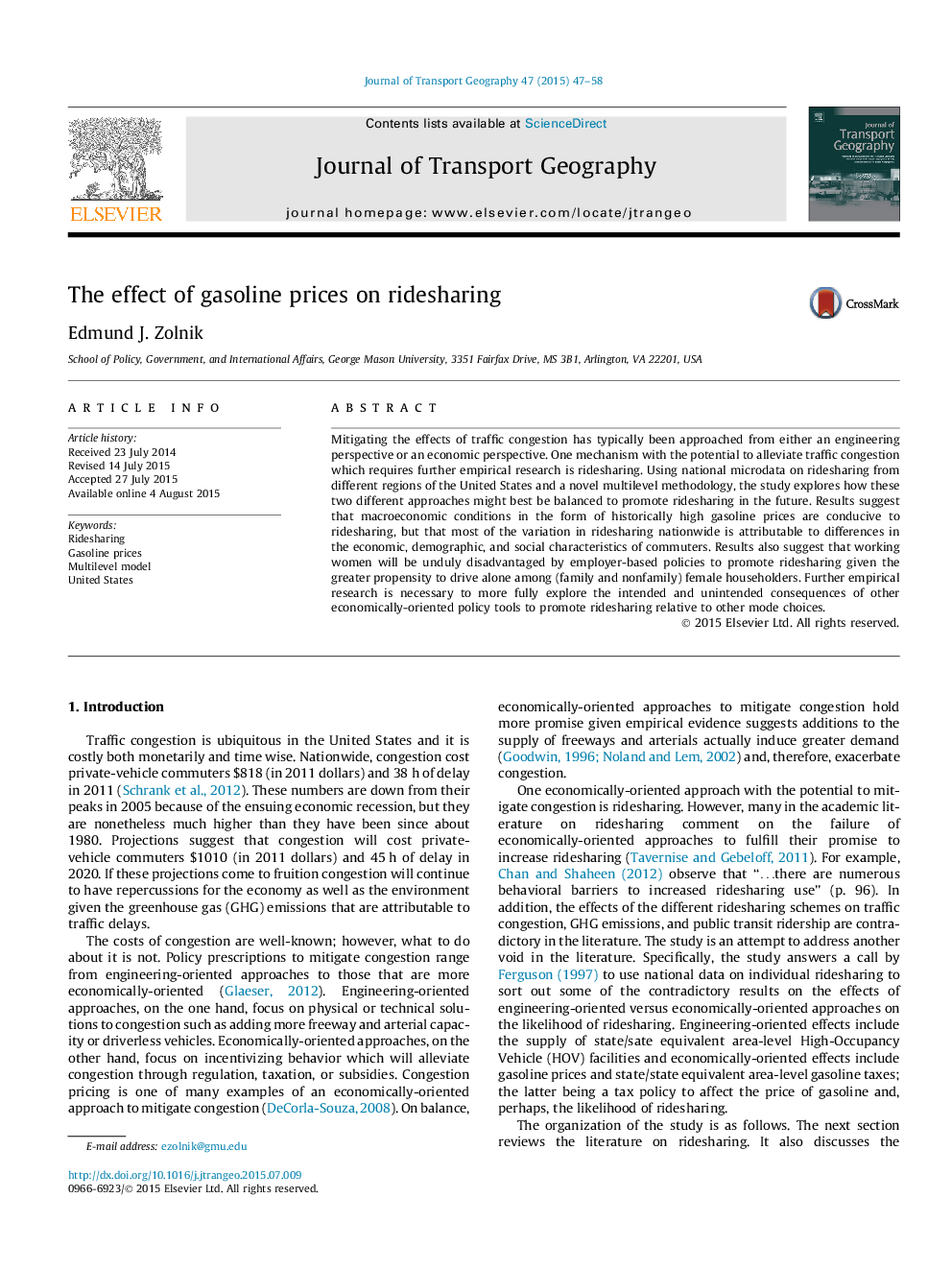| Article ID | Journal | Published Year | Pages | File Type |
|---|---|---|---|---|
| 7485845 | Journal of Transport Geography | 2015 | 12 Pages |
Abstract
Mitigating the effects of traffic congestion has typically been approached from either an engineering perspective or an economic perspective. One mechanism with the potential to alleviate traffic congestion which requires further empirical research is ridesharing. Using national microdata on ridesharing from different regions of the United States and a novel multilevel methodology, the study explores how these two different approaches might best be balanced to promote ridesharing in the future. Results suggest that macroeconomic conditions in the form of historically high gasoline prices are conducive to ridesharing, but that most of the variation in ridesharing nationwide is attributable to differences in the economic, demographic, and social characteristics of commuters. Results also suggest that working women will be unduly disadvantaged by employer-based policies to promote ridesharing given the greater propensity to drive alone among (family and nonfamily) female householders. Further empirical research is necessary to more fully explore the intended and unintended consequences of other economically-oriented policy tools to promote ridesharing relative to other mode choices.
Related Topics
Life Sciences
Environmental Science
Environmental Science (General)
Authors
Edmund J. Zolnik,
